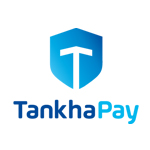Human Resources (HR) technology, commonly known as HR Tech, has transformed the way organizations manage their workforce. From recruitment to employee engagement, performance management, and compliance, HR Tech encompasses a wide range of tools and platforms designed to streamline processes, enhance employee experiences, and drive organizational success. In today’s fast-paced, technology-driven world, HR Tech is no longer a luxury but a necessity for businesses aiming to remain competitive. This blog explores the evolution, key components, benefits, challenges, and future trends of HR Tech, offering insights into its profound impact on modern workplaces.
The Evolution of HR Software In India
The journey of HR Tech began decades ago with basic payroll systems and employee record-keeping software. In the 1980s and 1990s, early HR systems focused on automating administrative tasks such as payroll processing and benefits management. These systems were often on-premises, clunky, and limited in functionality, requiring significant IT support.
The early 2000s marked a significant shift with the rise of cloud-based solutions and Software-as-a-Service (SaaS) platforms. Tools like Applicant Tracking Systems (ATS) and Human Resource Information Systems (HRIS) began to gain traction, enabling HR teams to manage recruitment, employee data, and compliance more efficiently. The introduction of mobile technology and social media further accelerated the adoption of HR Tech, allowing for real-time communication and data access.
In recent years, advancements in artificial intelligence (AI), machine learning (ML), and data analytics have propelled HR Tech to new heights. Modern platforms now offer predictive analytics, personalized employee experiences, and automation of complex tasks like talent acquisition and performance reviews. The integration of HR Tech with other business systems, such as Customer Relationship Management (CRM) and Enterprise Resource Planning (ERP), has further enhanced its capabilities, creating a seamless flow of data across organizations.
Key Components of HR Tech
HR Tech encompasses a broad spectrum of tools and platforms, each addressing specific aspects of human resource management. Below are the key components driving the HR Tech revolution:
1. Recruitment and Talent Acquisition
Recruitment platforms like LinkedIn, Indeed, and Workable have revolutionized how organizations attract and hire talent. AI-powered tools analyze resumes, match candidates to job descriptions, and even conduct initial screenings through chatbots. These platforms reduce time-to-hire and improve the quality of hires by leveraging data-driven insights.
2. Human Resource Information Systems (HRIS)
HRIS platforms, such as Workday, BambooHR, and ADP, serve as the backbone of HR operations. They centralize employee data, manage payroll, track attendance, and ensure compliance with labor laws. These systems provide a single source of truth, enabling HR teams to make informed decisions quickly.
3. Employee Engagement and Experience
Tools like CultureAmp, Glint, and Qualtrics focus on measuring and improving employee engagement. Pulse surveys, feedback platforms, and sentiment analysis help organizations gauge employee satisfaction and identify areas for improvement. These tools foster a positive workplace culture and reduce turnover.
4. Performance Management
Performance management systems, such as 15Five and Lattice, enable continuous feedback, goal setting, and performance tracking. Unlike traditional annual reviews, these platforms promote real-time feedback and alignment between individual and organizational objectives.
5. Learning and Development
Learning Management Systems (LMS) like Cornerstone, LinkedIn Learning, and Degreed provide employees with access to training programs, certifications, and skill development resources. These platforms support upskilling and reskilling, critical in today’s rapidly changing job market.
6. Payroll and Benefits Administration
Payroll platforms like Gusto and Paychex automate salary calculations, tax deductions, and benefits management. These tools ensure accuracy, compliance, and timely payments, reducing the administrative burden on HR teams.
7. Workforce Analytics
Data analytics tools, such as Visier and Tableau, provide HR professionals with insights into workforce trends, turnover rates, and productivity metrics. Predictive analytics helps organizations anticipate staffing needs, identify high-potential employees, and mitigate risks.
8. Employee Self-Service Portals
Self-service portals empower employees to manage their own HR-related tasks, such as updating personal information, accessing pay stubs, or requesting time off. These portals enhance efficiency and reduce HR’s administrative workload.
Benefits of HR Tech
The adoption of HR Tech offers numerous benefits for organizations, employees, and HR professionals alike. Below are some of the key advantages:
1. Increased Efficiency
Automation of repetitive tasks, such as payroll processing and resume screening, frees up HR teams to focus on strategic initiatives. This leads to faster processes and reduced operational costs.
2. Data-Driven Decision Making
HR Tech provides access to real-time data and analytics, enabling organizations to make informed decisions. For example, predictive analytics can help identify employees at risk of leaving, allowing proactive retention strategies.
3. Enhanced Employee Experience
From personalized onboarding to continuous feedback, HR Tech creates a more engaging and supportive employee experience. Tools like employee recognition platforms foster a sense of belonging and motivation.
4. Improved Compliance
HR Tech ensures compliance with labor laws, tax regulations, and industry standards. Automated systems track changes in legislation and update processes accordingly, reducing the risk of penalties.
5. Scalability
Cloud-based HR Tech solutions are highly scalable, making them suitable for businesses of all sizes. As organizations grow, these platforms can accommodate increasing workforce demands without significant infrastructure changes.
6. Global Talent Access
Recruitment platforms and remote work tools enable organizations to tap into global talent pools. This is particularly valuable in industries facing skill shortages or seeking diverse perspectives.
Challenges of HR Tech Adoption
While HR Tech offers significant benefits, its adoption is not without challenges. Organizations must navigate several hurdles to maximize its potential:
1. Cost and Implementation
Implementing HR Tech solutions can be expensive, particularly for small businesses. Costs include software licenses, training, and integration with existing systems. Additionally, the transition to new platforms can disrupt workflows if not managed properly.
2. Data Privacy and Security
HR systems handle sensitive employee data, making them prime targets for cyberattacks. Organizations must invest in robust cybersecurity measures and comply with data protection regulations like GDPR and CCPA.
3. Resistance to Change
Employees and HR teams may resist adopting new technologies due to unfamiliarity or fear of job displacement. Effective change management and training programs are essential to ensure a smooth transition.
4. Integration Challenges
Integrating HR Tech with existing systems, such as ERP or CRM, can be complex. Incompatible systems or data silos can hinder the effectiveness of HR Tech solutions.
5. Over-Reliance on Technology
While automation streamlines processes, over-reliance on technology can depersonalize HR functions. Striking a balance between technology and human interaction is critical to maintaining a positive workplace culture.
Future Trends in HR Tech
The future of HR Tech is poised for further innovation, driven by emerging technologies and evolving workplace dynamics. Below are some key trends to watch:
1. Artificial Intelligence and Machine Learning
AI and ML will continue to transform HR Tech by enabling smarter recruitment, personalized employee experiences, and predictive analytics. For example, AI-powered chatbots will handle employee queries, while ML algorithms will identify skills gaps and recommend training programs.
2. Focus on Employee Well-Being
HR Tech will increasingly prioritize employee well-being, with platforms offering mental health resources, wellness programs, and stress management tools. Wearable devices and apps will track employee health metrics, providing insights to support work-life balance.
3. Hybrid and Remote Work Solutions
The rise of hybrid and remote work has spurred demand for tools that support collaboration, communication, and performance tracking across distributed teams. Platforms like Slack, Zoom, and Asana will integrate with HR systems to create seamless remote work experiences.
4. Diversity, Equity, and Inclusion (DEI) Tools
HR Tech will play a crucial role in advancing DEI initiatives. Tools will analyze hiring practices, pay equity, and employee sentiment to ensure fair and inclusive workplaces.
5. Blockchain for HR
Blockchain technology has the potential to revolutionize HR by ensuring secure and transparent management of employee records, credentials, and contracts. This can streamline verification processes and enhance trust.
6. Personalized Employee Experiences
HR Tech will leverage AI to deliver hyper-personalized experiences, such as tailored career development plans, customized benefits packages, and individualized feedback. This will enhance employee engagement and retention.
7. Gig Economy Integration
As the gig economy grows, HR Tech will adapt to manage freelance and contract workers. Platforms will streamline onboarding, payment, and performance tracking for non-traditional employees.
Conclusion
HR Tech has become a cornerstone of modern human resource management, enabling organizations to navigate the complexities of today’s workforce. From automating administrative tasks to fostering employee engagement and leveraging data analytics, HR Tech drives efficiency, innovation, and employee satisfaction. However, organizations must address challenges like cost, data security, and change management to fully harness its potential.
Looking ahead, the continued evolution of HR Tech promises exciting possibilities. AI, employee well-being, and hybrid work solutions will shape the future of work, creating more inclusive, flexible, and productive workplaces. By embracing HR Tech, organizations can not only adapt to changing workforce dynamics but also gain a competitive edge in attracting and retaining top talent. As the workplace continues to evolve, HR Tech will remain at the forefront, empowering HR professionals to build the organizations of tomorrow.



